Do you hold an Open Water Scuba Diver Certificate? And did you not use it for a while, but want to find your way back into diving? Here are a few tips, that I would like to share with you and hopefully encourage you to let diving become part of your life again.
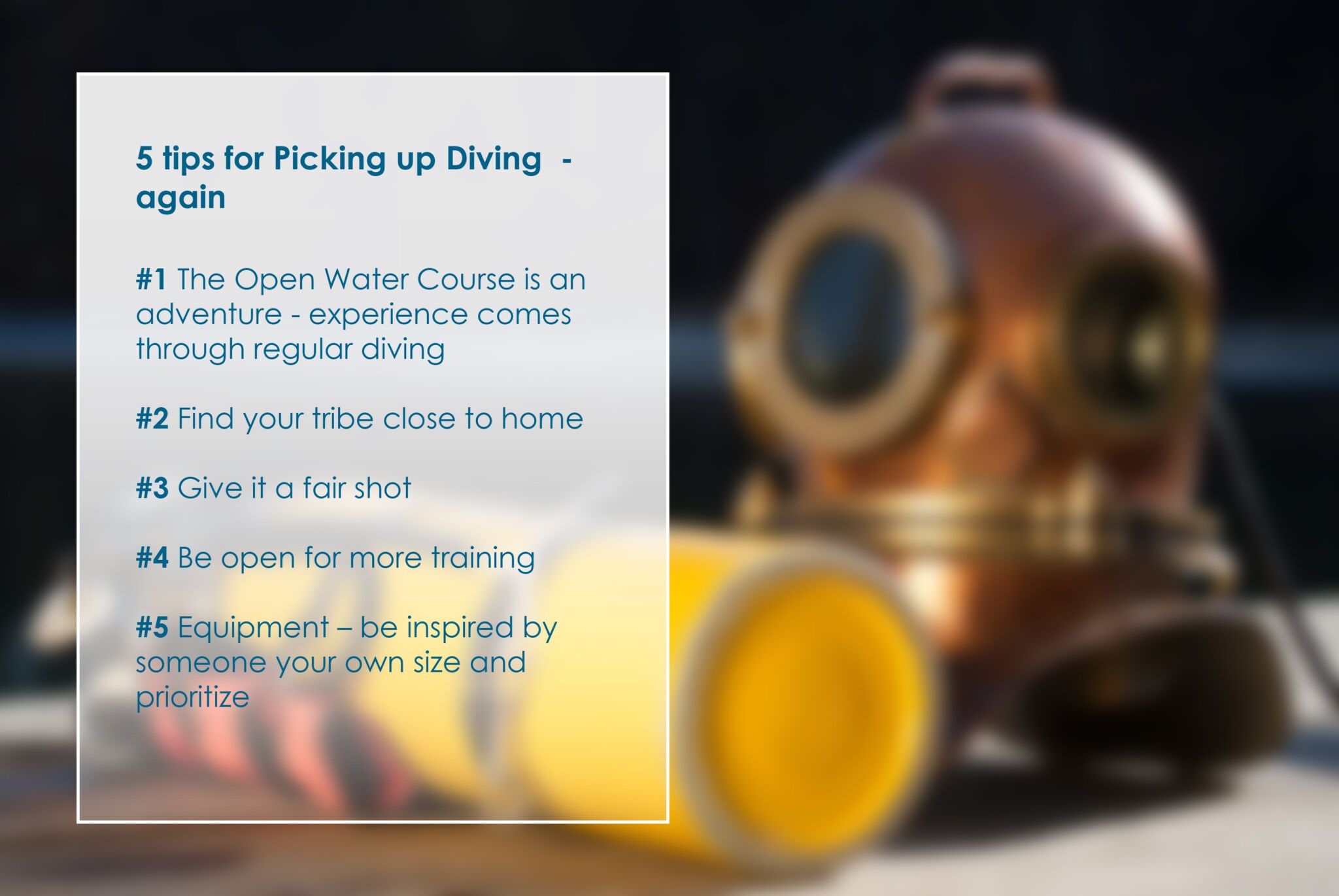
Tip #1 - The Open Water Course is an adventure - experience comes through regular diving
I have certified close to 100 entry level divers. Without knowing for sure, I believe that not even half of the people behind those certificates are using their skills regularly. I hope it is not because I didn’t do a good enough job motivating them, and it might be something to look into in another blog. For now, let’s look at how your diving adventure started and then later ended.
Maybe you did your first course on a trip of a lifetime and haven’t found yourself under the same circumstances again. Maybe life and family got in the way since you did your first course. Maybe you imagined diving to be something only done on holidays and traveling just doesn’t happen much in life at the moment. Whatever the reason, I am sure it is a good one, but I am also here to tell you, that if you miss diving, there is a way to get back into the game – and that the world of diving is everywhere if you look for it. The more you do it, the better it gets – even if it takes a bit of effort in the beginning.
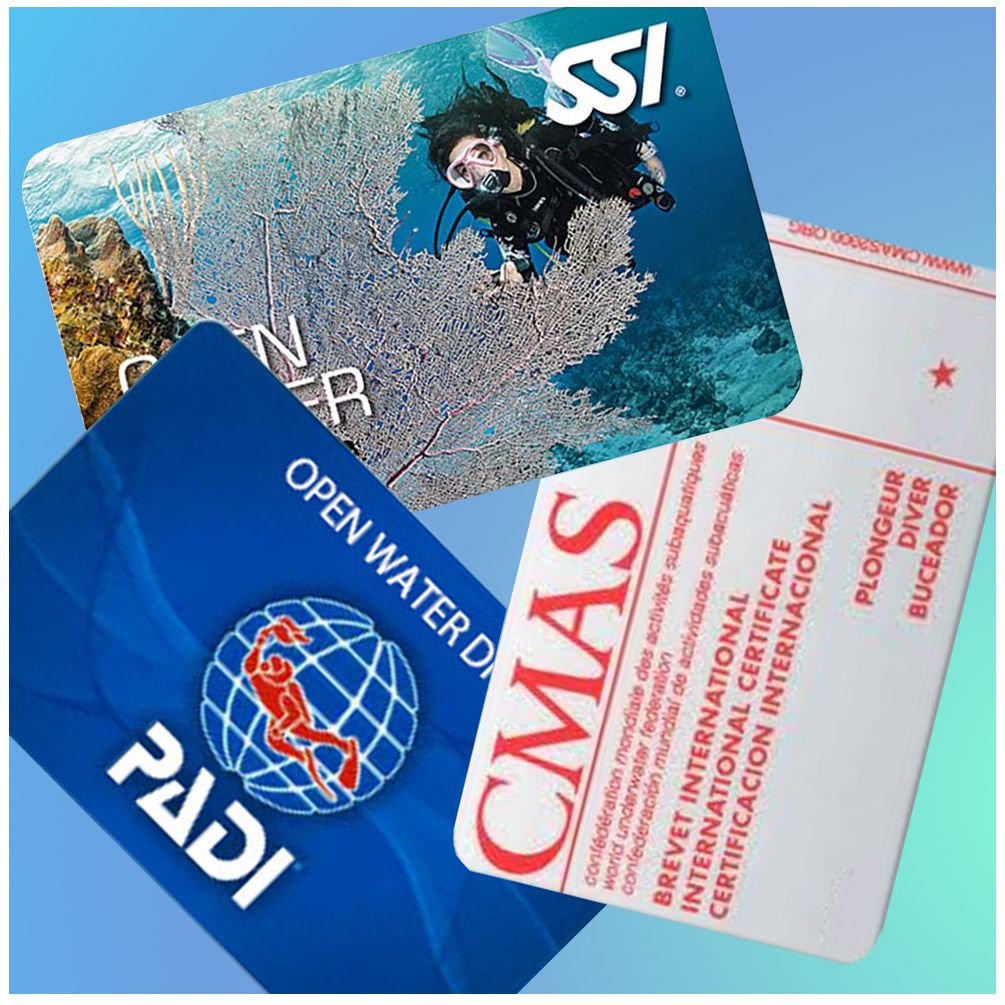
To me, it doesn’t matter what organisation you learned to dive with. At the end of the day, they all follow the same principles. What matters is your comfort level.
Tip #2 - Find your tribe close to home
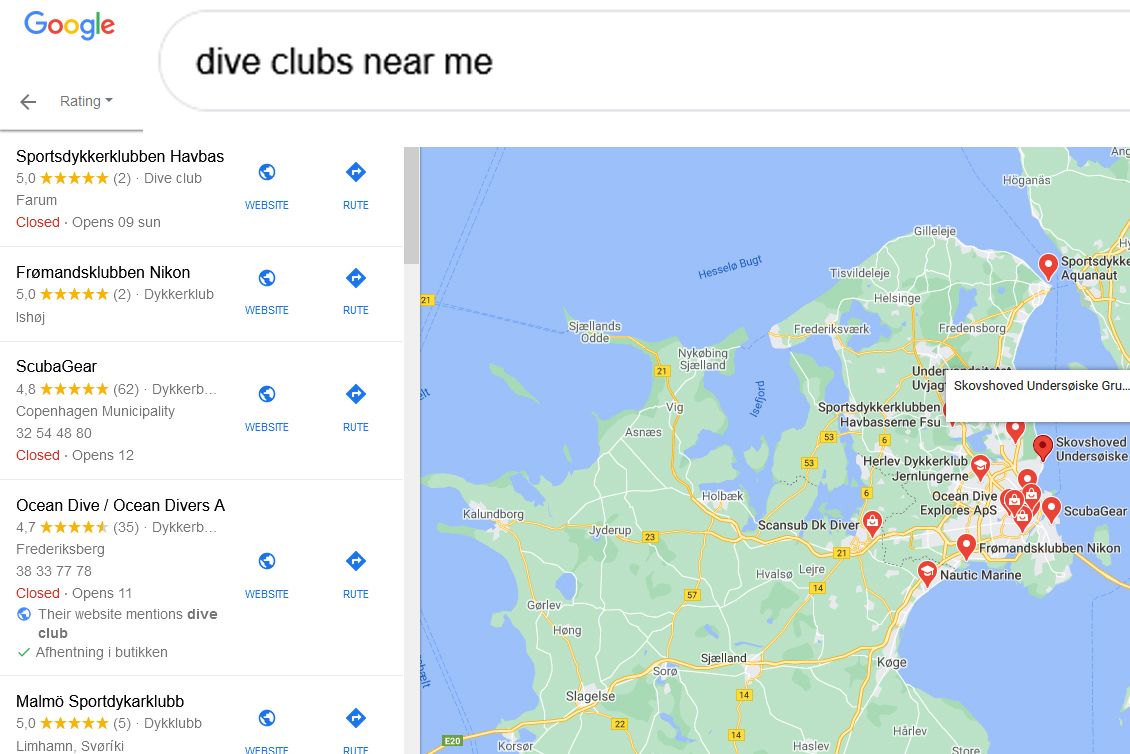
A quick search, will make you realize, that diving is everywhere.
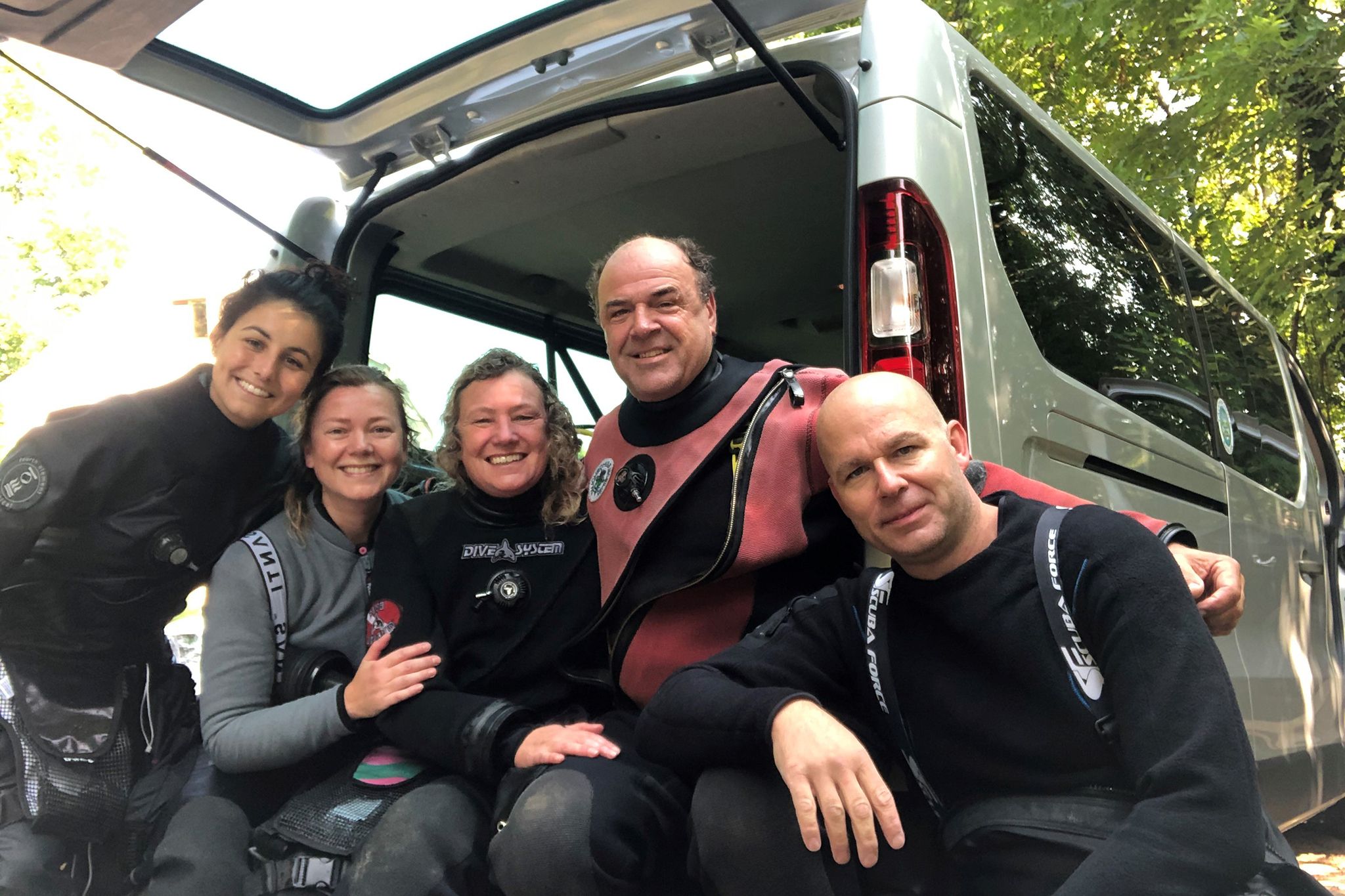
One of my tribes after a beautiful dives in the River Rhein.
My own diving adventure started in Thailand and Egypt and for years, I only dove in warm waters. My first cold water dive was my dive number 1221, so it also took me a while to expand my diving world to include the cold, green water of Denmark, where I am from. But I am sooo happy that I did. Like this, diving became a more integrated part of my life. And learning to dive with equipment needed for those conditions has given me endless diving options around the World. What got me started was being part of a local dive club. The diving club became my tribe and today I am part of many smaller diving communities all over the World. But the most important one is the one close to my home, so that diving is not far away.
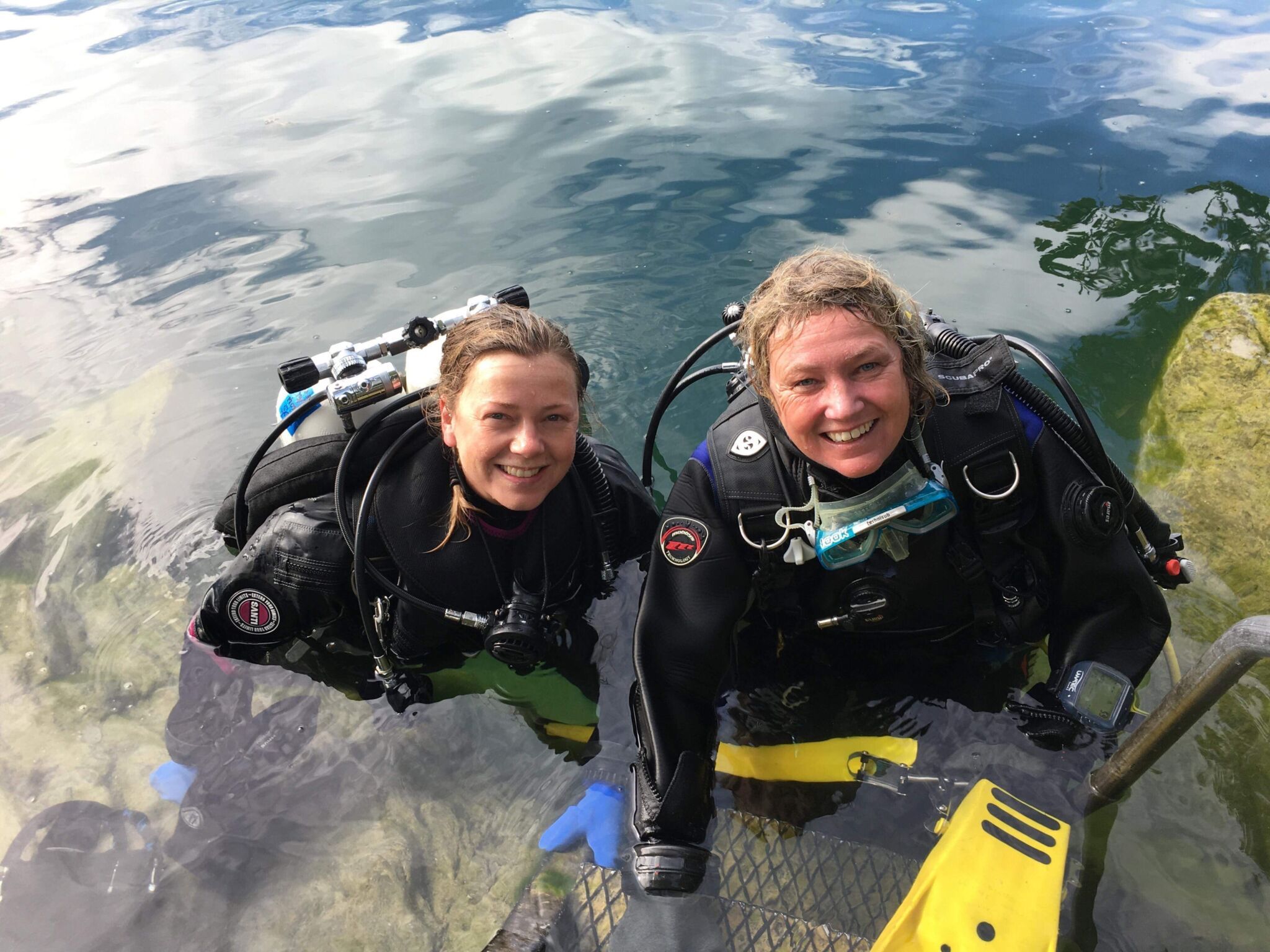
This photo of me and Astrid was taken after my first dive in a lake in 2018.
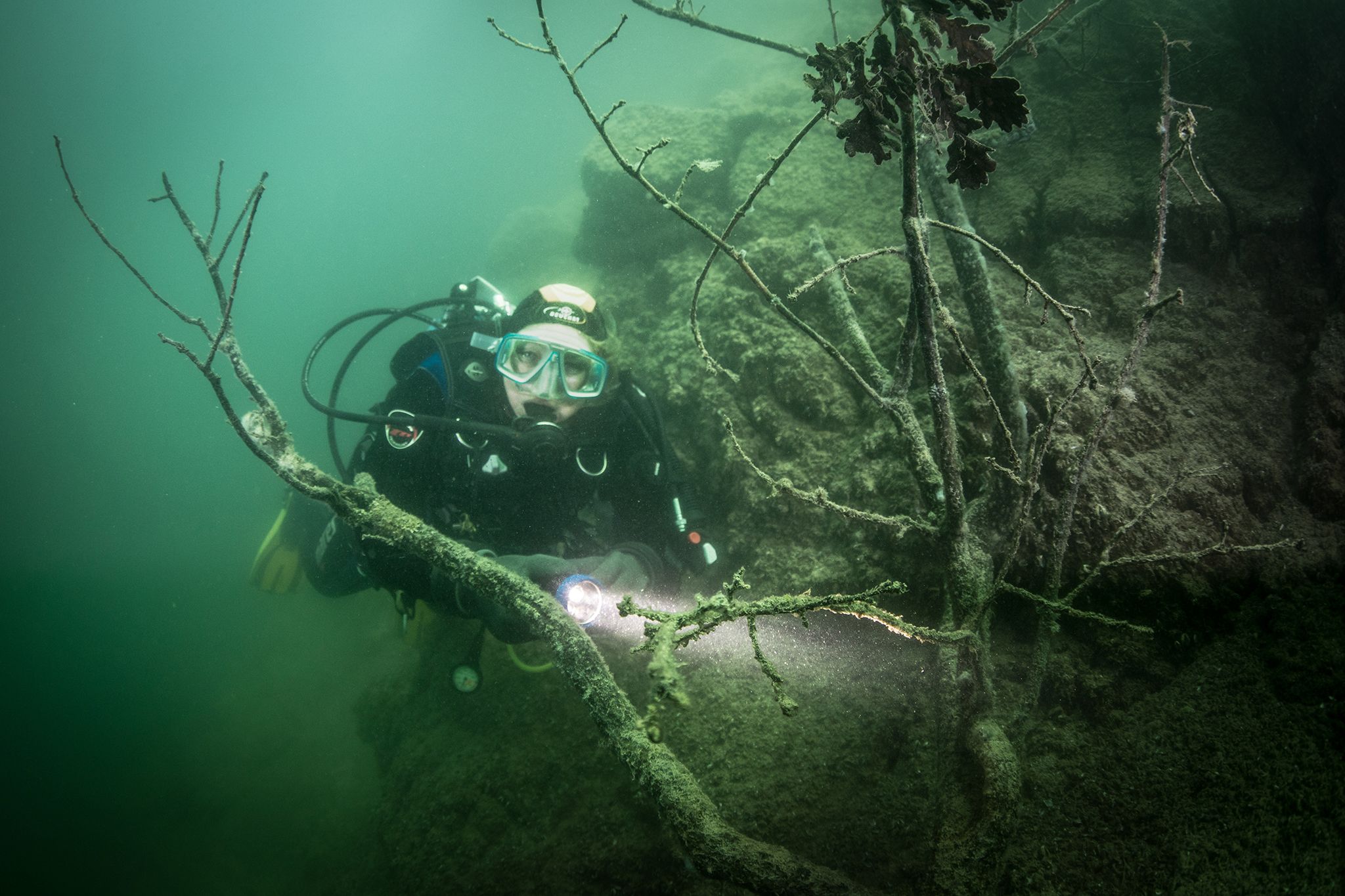
Lake diving is interesting for the formations and deep lakes make for great training dives for tecknical levels.
I know, Denmark has ocean everywhere and no one lives farther than 1 hour by car from the sea. That of course is not the case everywhere. But diving in lakes can be very interesting and challenging as well. I know people who do most of their diving in the same lakes over and over again. Because that is another thing, diving doesn’t need to be something you do in new dive sites in new countries all the time. You can visit the same place time after time. When going diving you don’t have to see new things. You can strive for practicing new skills on every dive instead, or finetune the skills you have already. You can also use your frequent dives close to home as a type of therapy. Something familiar and relaxing, that you know you can do and know will make you feel better. It is the experience in the water with nature, that can give you such a thrill, that diving can turn into a needed and healthy drug in your everyday life.
And this feeling can even be obtained in a pool. I know it sounds crazy, but though it might not be nature, diving in an indoor pool, still gives you that connection with the water element and lets your body feel weightless. I know of dive clubs that have weekly times at the pool, where members can come and practice skills, test equipment or just blow bubbles.
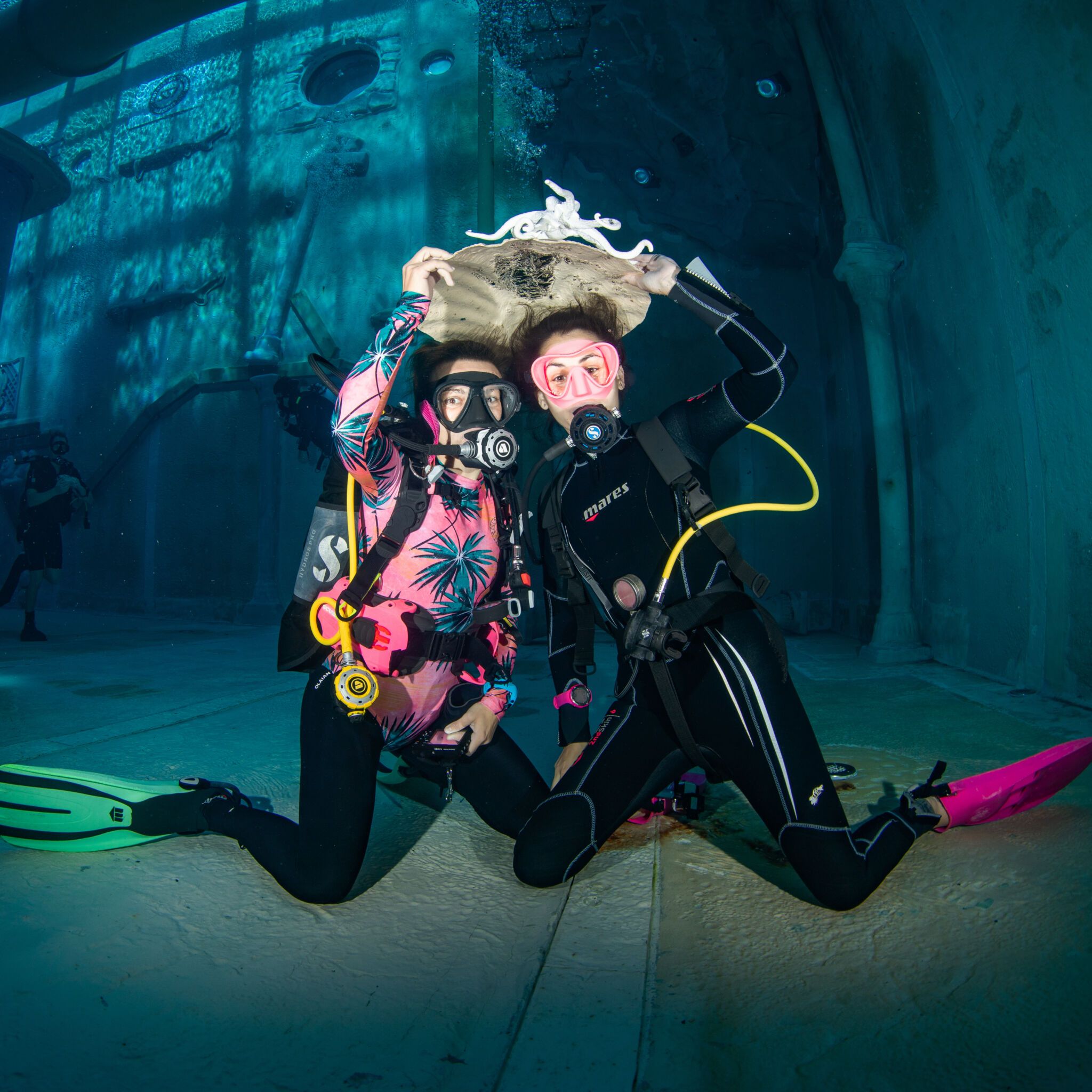
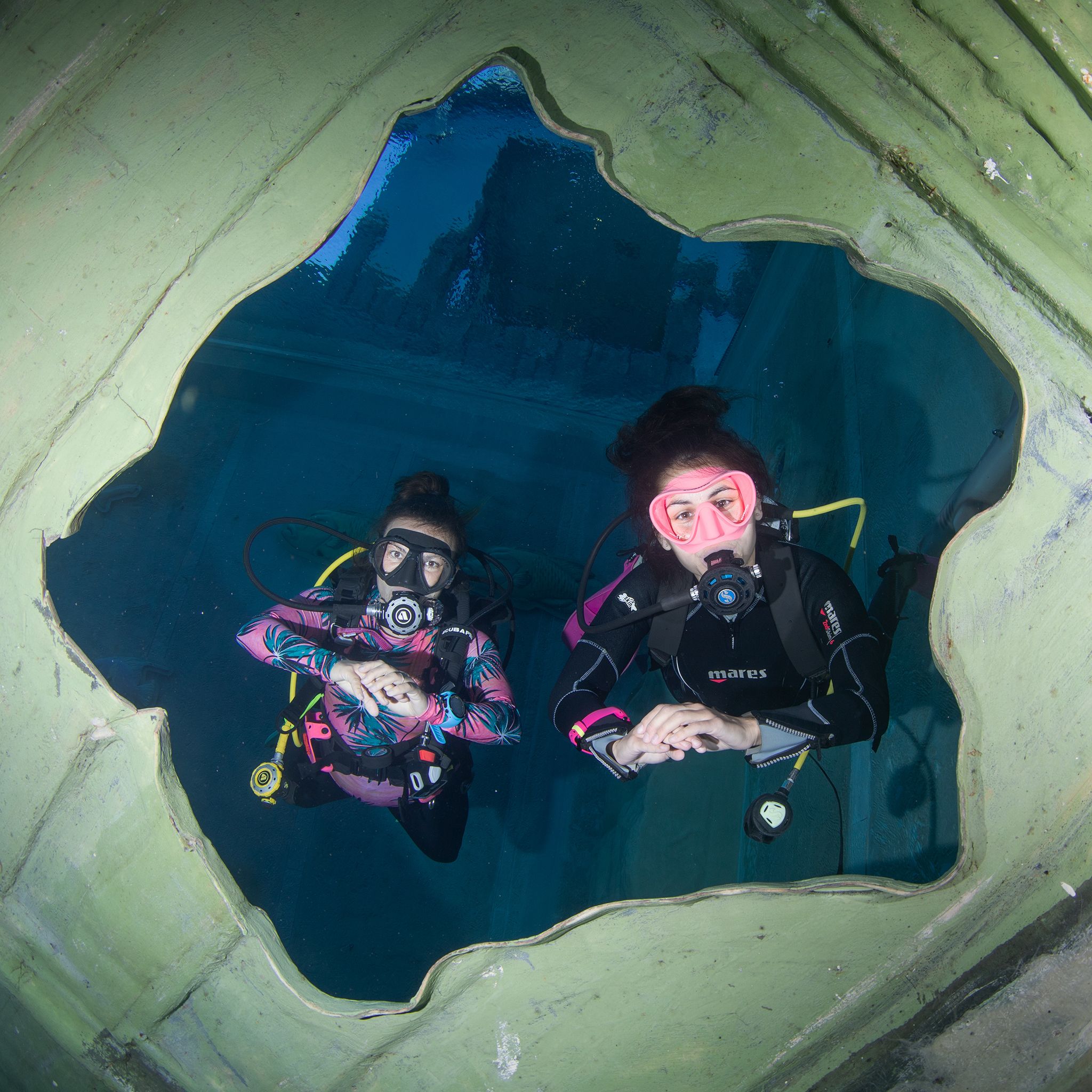
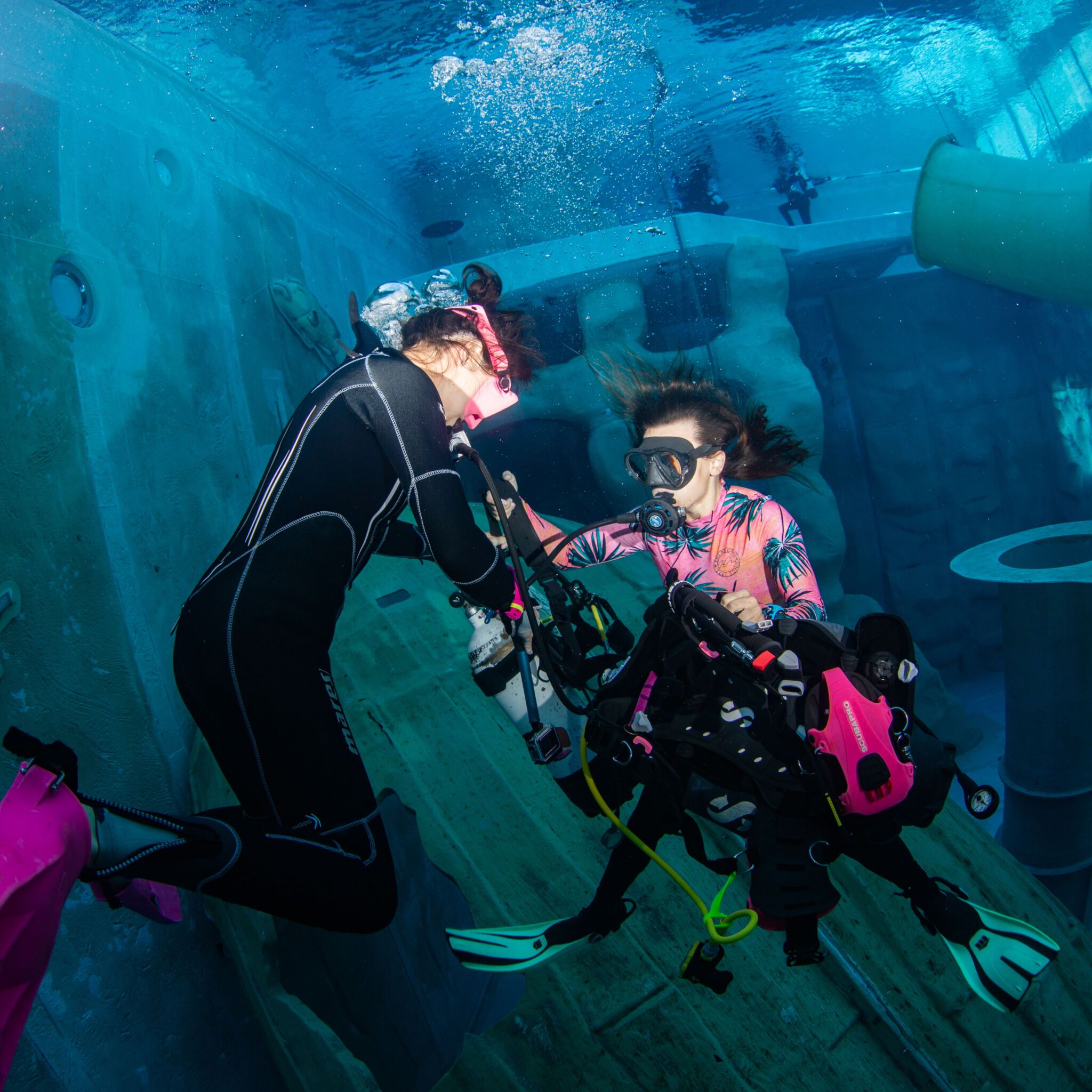
My crazy scuba girls tribe Sarah and Anja. We had a great day in Monte Mare Rheinbach making photos, video and practicing skills. This pool is made for scubadiving and offers many fun gadgets for the visitors.
Tip #3 - Give it a fair shot
It is a time-consuming sport though, so if you want to make diving part of your life again, I recommend, that you give it a fair shot. The first time, it will possibly seem like hard work and a lot of effort for a short time underwater but give it a few tries and see if the hard work does not get replaced by great social time with the other divers. I recommend that you at least set yourself up for 5 dive events before deciding if you are in or if you are out.
A day at Trykkerdammen in Denmark, where friends of mine, who were certified some years ago, make some training reviews with me.
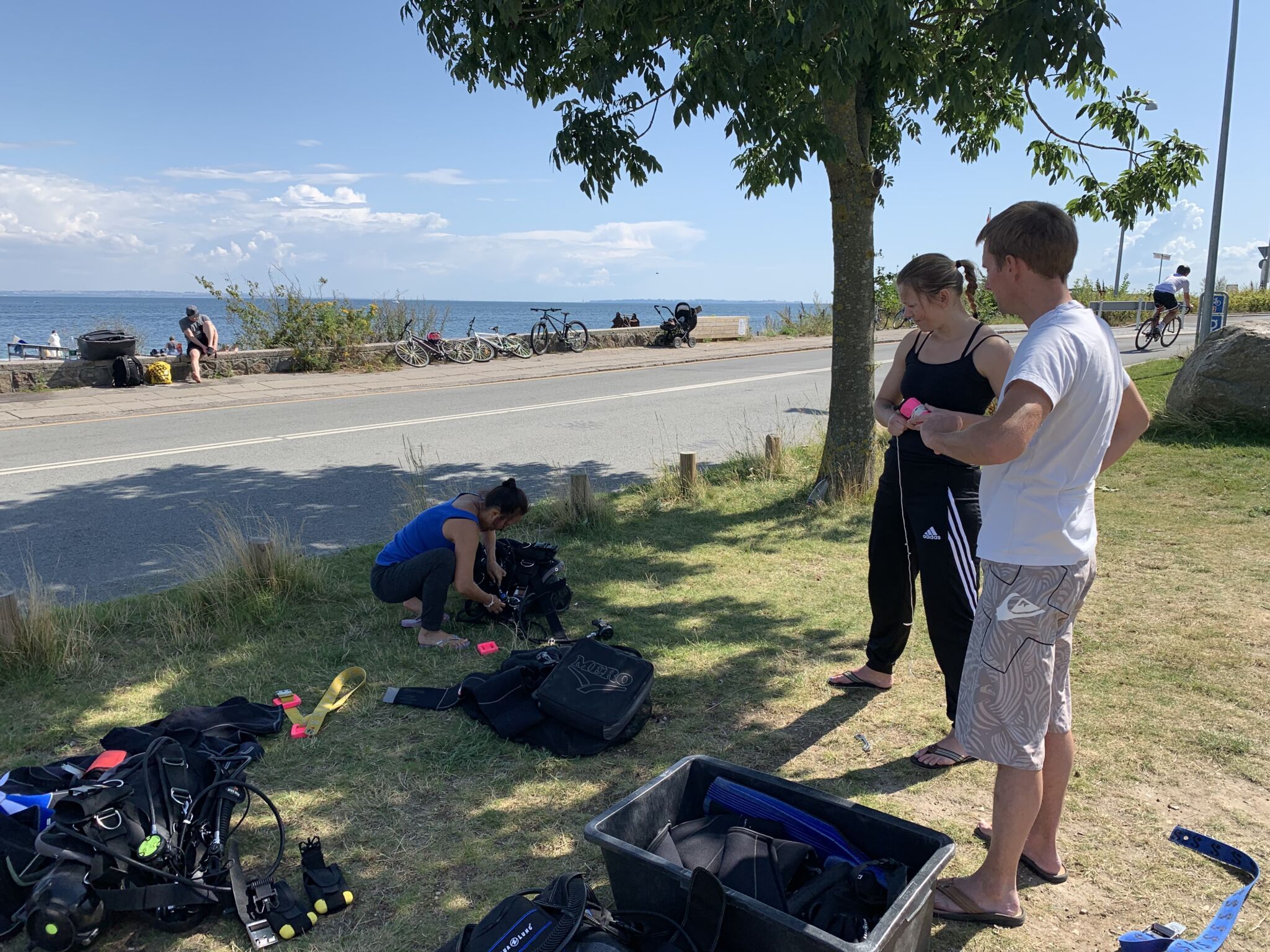
Tip #4 - Be open for more training
If it has been years since you dived last and if all you did was your Open Water Scuba Diver Course and a few fun dives afterwards, you are a beginner and a rusty one. Even if your instructor at the time praised you a lot. I am sure you deserved the praise but be realistic about how much (or little) you remember, and that diving is not like riding a bike. Well, maybe it is when it comes to your buoyancy. But entry level diving courses focus mainly on safety procedures. And be honest, do you remember all of them and feel comfortable that you will be able to execute them? If not, don’t let that stop you. Book time with an instructor at your local dive club and go over these skills again. I promise you, it is a lot easier the second time around. And maybe it is just me, but I enjoy re-learning things. It gives me a feeling, that I am talented at something haha. Even as an experienced diver, I would recommend you to enrol in dives under the supervision of a dive instructor or dive master, when diving under circumstances that are significantly different from those you were taught under or dived at before. What harm can it do? And really, doing a dive somewhere with someone who really knows the place is always preferred. I love having a private guide, who will point out all the best stuff and know the local dive site, like their own pocket.
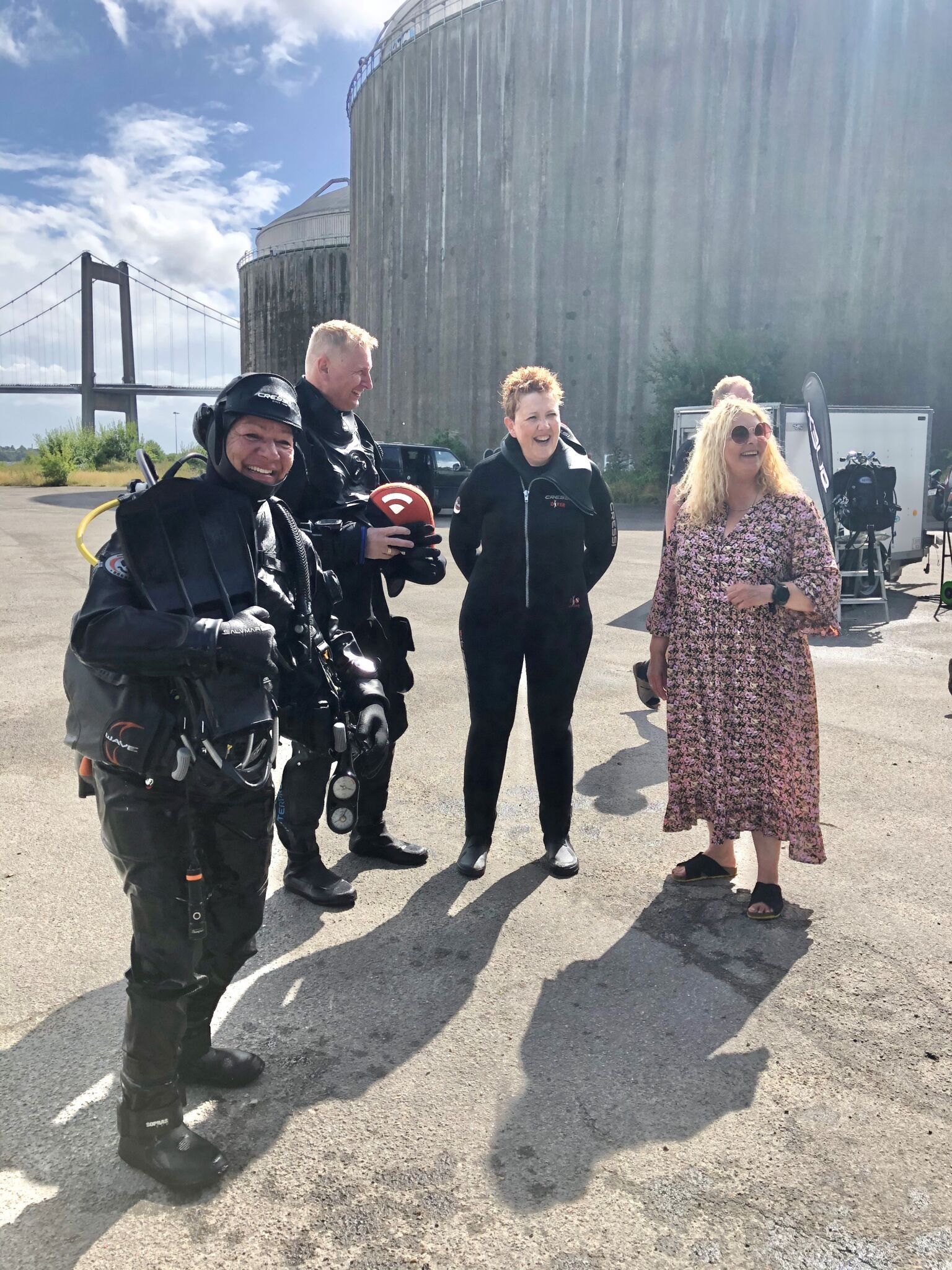
From a day at one of my favorite dive sites in Denmark. A lot of training is being conducted here and the dive community is very alive at Ammoniakhavnen.
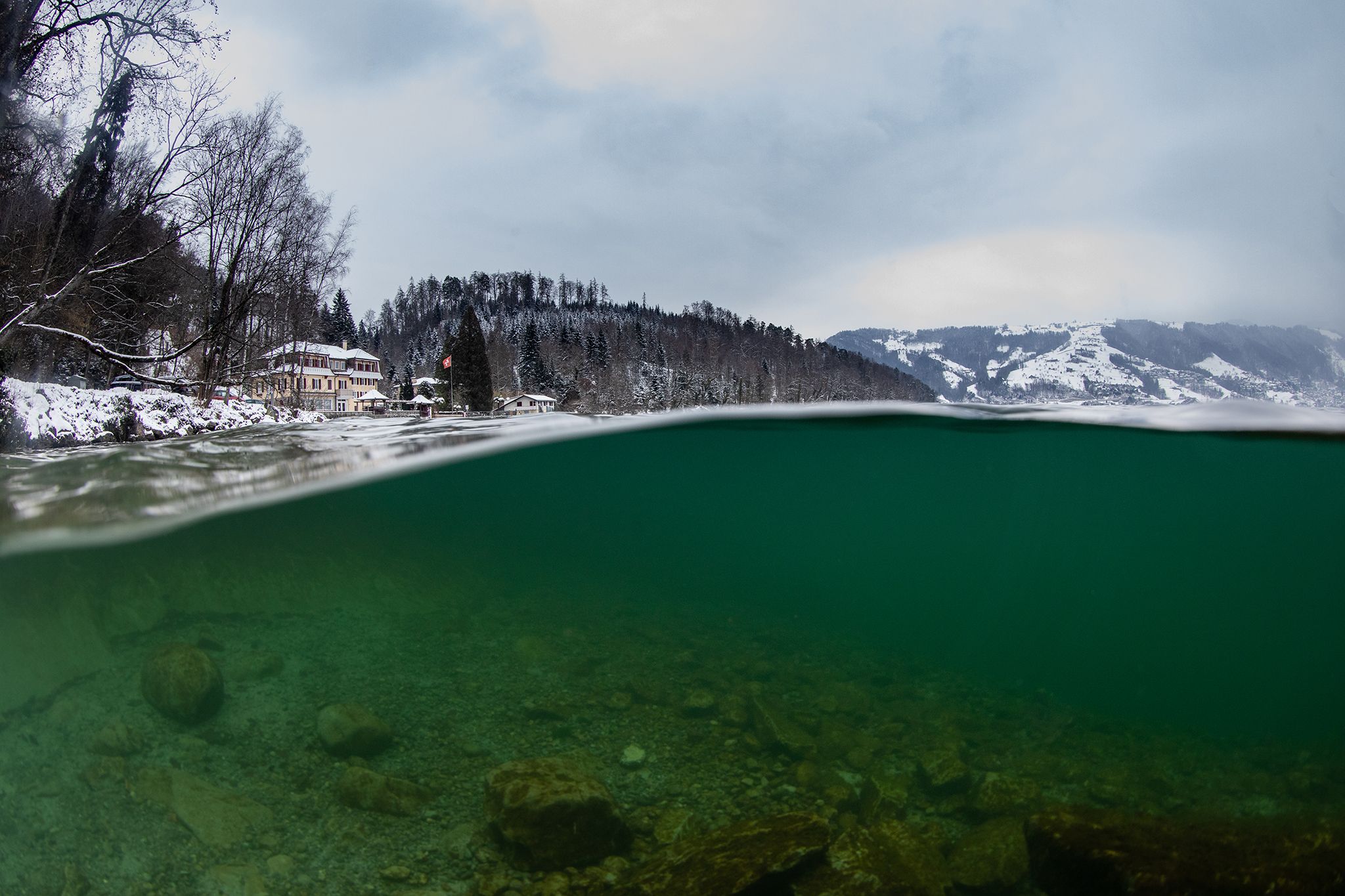
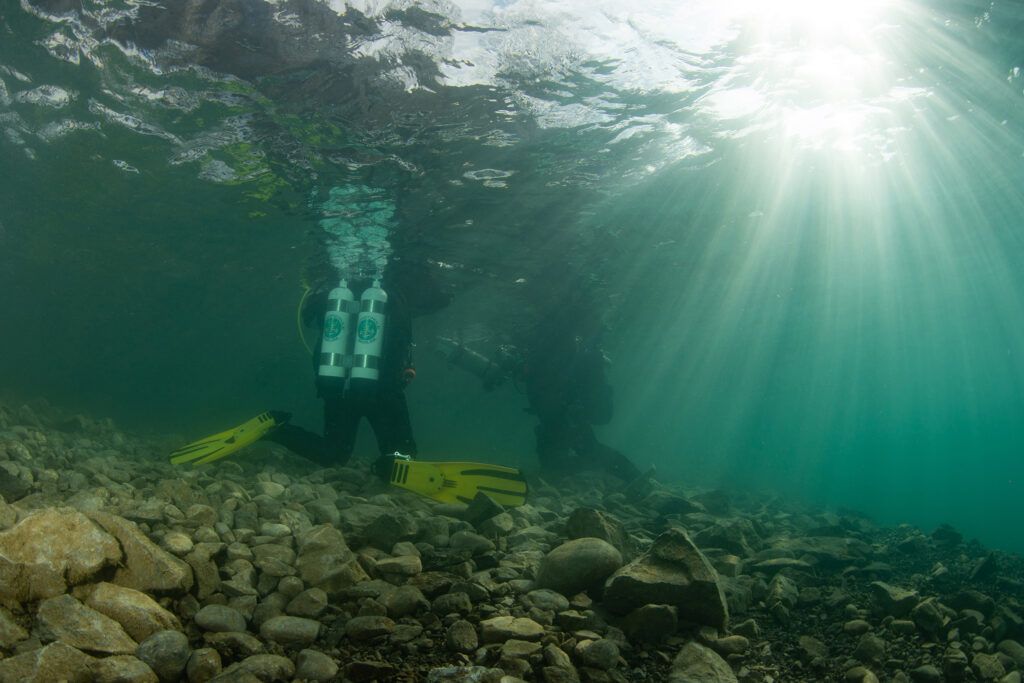
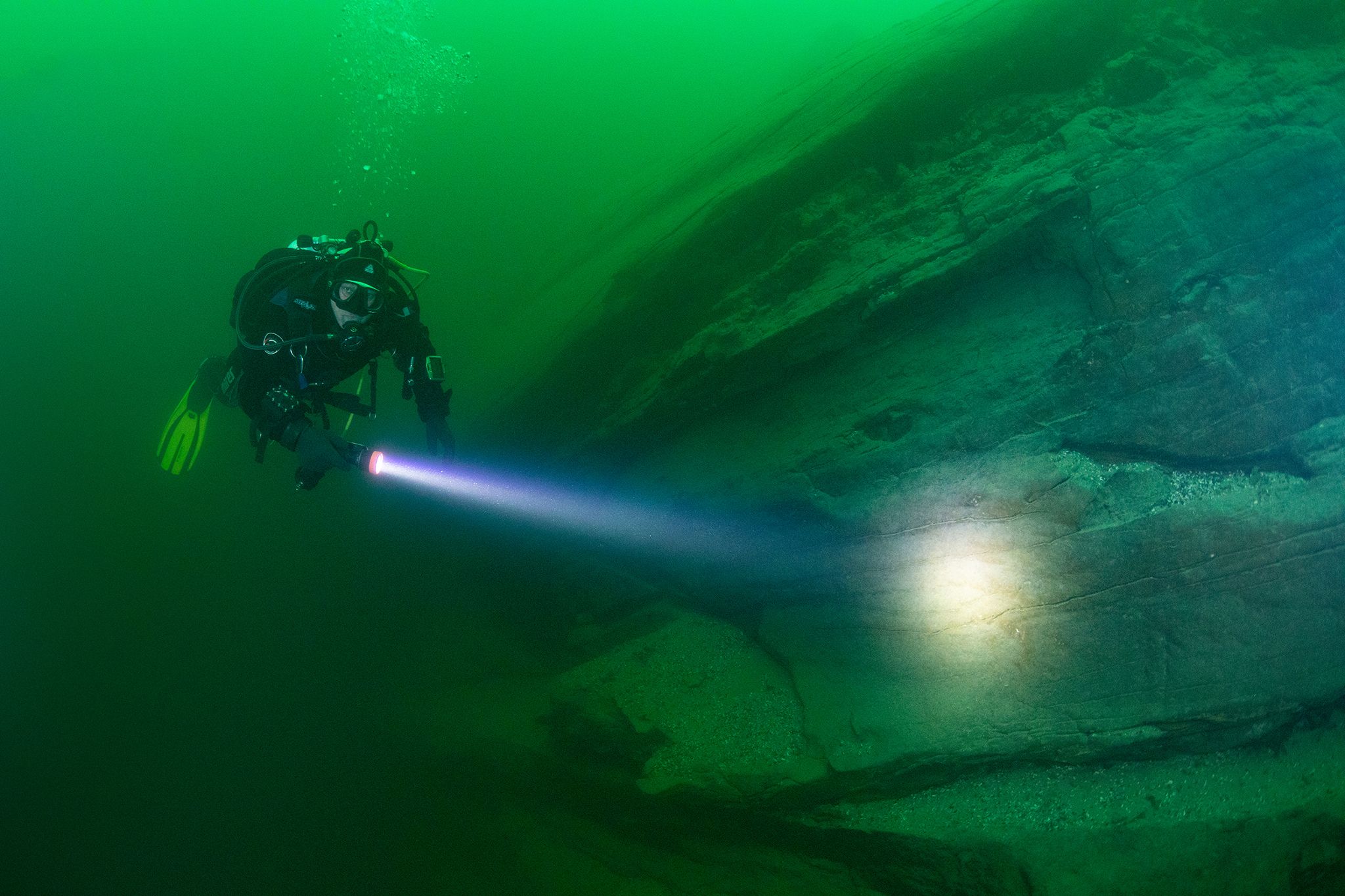
More photos from diving done in Swiss lakes – this time during Winter. Though fish are pretty much abscent, the scenary is magical.
Tip #5 - Equipment – be inspired by someone your own size and prioritize
Diving close to home with a dive club might mean you need to get your own gear. I know it is a big investment, so don’t rush. My advice is to get the right stuff from the beginning and something that will last for years. That is in general my shopping advice – buy things that last. That is the most sustainable purchase you can do. But how? It is a jungle out there. And like in many other sports that require a lot of gear, there will be plenty of people that like to discuss gear and recommend you stuff. I believe they will also recommended exactly what they own themselves, because that satisfies them on their purchase. So, how do you get a qualified, objective opinion that fits your needs? It is a tough one and I am not sure, there is a short cut through a few wrong purchases and be aware, that your needs will also change, as your experience grows. So, here is what I would do. Rent and borrow for a while. Ask lots of questions and note down your experiences with the gear you try and with what others tell you. Be a little structured about it. Many problems or uncomfortable issues underwater can be solved with the right gear, but skill level and the right gear go hand in hand, so again, give it a fair shot. I believe the following will help you in the jungle:
- Get personal advice from divers that look like you and dive in the same areas. They have most probably been through the same journey as you.
- Simple it better. If the equipment seems very complicated and full of dangling things, that can get stuck everywhere – then get something else. You need to understand your gear and know every little corner of it. So simple might be the better solution to start with.
- If you are on a budget and don’t know what to buy first, note down what items satisfy you the least when you rent. If you can never find an exposure suit, that fits, maybe that is your first buy. If you find rental regulators to be tough to breathe in and this is an area, where you need a great performance, put your money in a great regulator set first.
It took me a while to get it right, but I am so happy with the set-ups I have now – and with the right gear, the possibilities are endless.

A short video from Denmark. Sometimes the simplest things can offer so much beauty, so nomatter what local diving is for you, I hope you will give it a chance.
If this blog has raised any questions or ideas, you would like to debate with me, I am happy to answer. Just get in touch and get diving.
